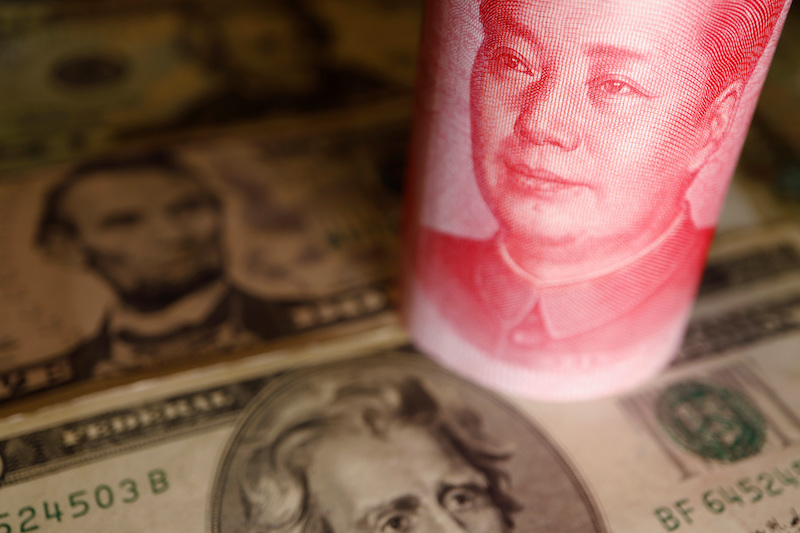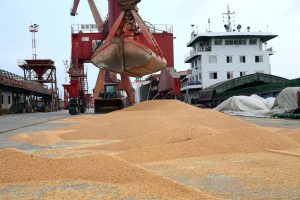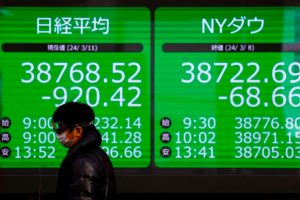China’s yuan hovered at a near 15-year low on Thursday, after the US Federal Reserve opted to increase US interest rates higher than expected.
The Fed raised its benchmark funds rate by 75 basis points as expected, but said the fight to cool inflation needs borrowing costs to be further.
That outcome forced the People’s Bank of China (PBOC) set the midpoint rate at 7.2472 per dollar, 275 pips or 0.28% weaker than the previous fix 7.2197, and the softest since January 22, 2008.
In the spot market, the onshore yuan opened at 7.3100 per dollar, before it eased to a low of 7.3110, not far from a near 15-year low of 7.3280 hit on Tuesday.
By midday, the spot yuan was changing hands at 7.3036, 146 pips or 0.2% weaker than the previous late session close.
Traders said the currency’s weakness stemmed mainly from the firmer dollar, but signs of a domestic slowdown added pressure on the yuan.
ALSO SEE:
Tencent, China Unicom Data Centres Joint Venture Approved
Covid Curbs Slow Services Sector
China’s services activity contracted for a second straight month in October and by a sharper pace as Covid containment measures hit businesses and consumption, a private-sector business survey showed on Thursday.
“We further lower our 2023 GDP growth forecast by 70 basis points, to 3.8%,” economists at Barclays said in a note.
“The downgrade is mainly attributable to our weaker outlook for the property sector and worsening external demand amid a looming global recession and rising geopolitical tensions.”
A recent Reuters poll forecast China’s growth to slow to 3.2% in 2022, far below the official target of around 5.5%, which is one of its worst performances in almost half a century.
Separately, some market participants said they would shift their attention to US jobs data due on Friday for more clues on the Fed’s tightening trajectory.
By midday, the global dollar index rose to 111.925 from the previous close of 111.345, while the offshore yuan was trading at 7.3225 per dollar.
- Reuters with additional editing by Jim Pollard
ALSO SEE:
Governance Fears on China Property Firms as Auditors Quit
EV Maker Nio and Yum China The Latest Zero-Covid Victims
Hong Kong Banks on China Links to Restore Global Status
























